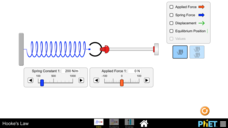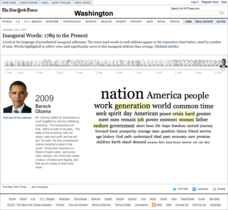Library of Congress
A Selection of Stories from The Æsop for Children
Read and incorporate a variety of Aesop's Fables into a fable genre study with an eBook produced by the Library of Congress. The interactive eBook contains 146 fables written by Aesop and includes colorful interactive illustrations by...
Broward County Schools
ABC’s of Bullying Prevention
What is the problem? Why should I care? What can I do about it? These three questions are at the heart of a program designed to lead young people to understand that the way to prevent bullying is for their Attitude and Behavior to Change...
Cornell University
Fibers, Dyes, and the Environment
Nanofibers can be made through electrospinning or force spinning in order to reduce the negative impact on the environment. Pupils study the role of fibers and dye on the environment through a series of five hands-on activities. Then,...
Reporters Without Borders
2017 World Press Freedom Index
Freedom of the press was seen as a right so important that the Founding Fathers listed it as part of the first amendment to the United States Constitution. Americans pride themselves on this freedom, but just how free are American...
Walt Disney Company
Disaster Preparedness Activity Book
Join the American Red Cross as well as Mickey and friends as they help to prepare young scholars for natural disasters. After reading brief informational passages about earthquakes, floods, fires, storms, tornadoes, and hurricanes,...
Centers for Disease Control and Prevention
Measuring Bullying Victimization, Perpetration, and Bystander Experiences: A Compendium of Assessment Tools
Designed to provide tools to assess a range of bullying experiences, from perpetrators, to victims, to bystanders, the assessment tools in this packet asks pupils to rate themselves as bullies, victims, and/or bystanders. There are also...
University of Kentucky
Bullying Awareness Lessons, Activities and Resources
What are the different types of bullying? What are the impacts? What is the role of the bystander in bullying? What can be done to stop bullying? These questions are addressed by the activities included in a workshop designed for middle...
PHET
Projectile Motion
Have you ever wanted to shoot someone out of a canon? This simulation gives you that chance! In addition to a human, you can shoot a car, a piano, a cannon ball, and many other items. Scholars set the angle, initial speed, mass, air...
PHET
Ohm's Law
Why did Mr. Ohm marry Mrs. Ohm? He couldn't resistor. An electrifying simulation allows scholars to control both voltage and resistance in order to see the current change. The formula is displayed and as you increase one variable, it...
PHET
My Solar System
Orbit diagrams appear to be a work of mathematical art. The simulation helps scholars build their own systems of planets, stars, moons, etc., to observe their orbits. By altering their positions, velocities, and masses, a variety of...
PHET
Hooke's Law
Everything from pens to cars use springs — some are just on a larger scale! An interactive simulation encourages pupils to stretch and compress springs while observing the changes to force, displacement, and potential energy. Then they...
Curriculum Corner
Native American Literature
Celebrate and honor Native American culture with this set of graphic organizers that showcases literature like The Girl Who Loved Wild Horses and A Boy Called Slow as well as three other Native American literature books. Learners compare...
PHET
Masses and Springs
Have you ever stretched out a Slinkie so much it wouldn't go back to its original shape? Slinkies, like all springs, follow Hooke's Law. A simulation uses springs and masses to demonstrate kinetic, potential, and thermal energy. It...
PHET
Electric Field of Dreams
What is the largest electric field in the world? The world itself! This explains why you use a magnetic compass to determine direction. During the simulation, scholars add charges to their electric field to see how the field reacts. An...
PHET
Energy Skate Park
Apply the concepts of conservation of energy to a skater to introduce a fun way the concepts apply to real life. Scholars build tracks, ramps, and jumps then analyze the various types of energy and friction. For an added challenge,...
PHET
Forces and Motion
The average American will move 12 times, which results in a lot of moving furniture! Class members consider the forces required to move objects with a creative simulation that opens with the forces required to push a filing cabinet....
Curriculum Corner
Area and Perimeter
Get third graders excited to work find area and perimeter of unit squares, rectangles, and irregular shapes. A 36-page packet comes with task cards, graphic organizers, practice worksheets, printables with squares, exit tickets, and word...
Curriculum Corner
Order of Operations Task Cards (2)
Young mathematicians use their PEMDAS knowledge to solve 20 different task cards. They evaluate expressions to find the answer of multiplication, division, addition, subtraction, and exponential problems. Then, they record their answers...
The New York Times
Inaugural Words: 1789 to the Present
One of the reasons presidential inaugural speeches are so inspiring is the way word choice reflects the historical context of the time. An interactive timeline invites learners to click on their president of choice and view the most...
PHET
The Greenhouse Effect
How do greenhouse gases impact temperature? Have your classes use the interactive software to explore different concentrations of greenhouse gases and their effect on climate. Learners can recreate different atmospheric concentrations...
PhET
Wave on a String
The sound waves of thunder are made when lightning very quickly heats the air surrounding it, expanding faster than the speed of sound. Learners explore waves through their own movement of string or set waves to constantly oscillate....
PhET
Balancing Chemical Equations
Just like the old saying goes, "What goes in must come out." This simulation allows pupils to balance chemical equations. The introduction gives three examples before scholars switch to game mode, pick their level, and continue to...
American Chemical Society
A Catalyst and the Rate of Reaction
More than 90 percent of chemical products are made using a catalyst. Lesson demonstrates the way a catalyst changes the rate of reaction without altering the chemical reaction. A catalyst doesn't appear as a reactant or a product, yet it...
American Chemical Society
Temperature and the Rate of a Chemical Reaction
Putting glow sticks in the freezer makes them last longer, but why is that? Lesson focuses on how temperature impacts the rate of a chemical reaction. It begins with a teacher demonstration, then scholars design their own experiments...

























